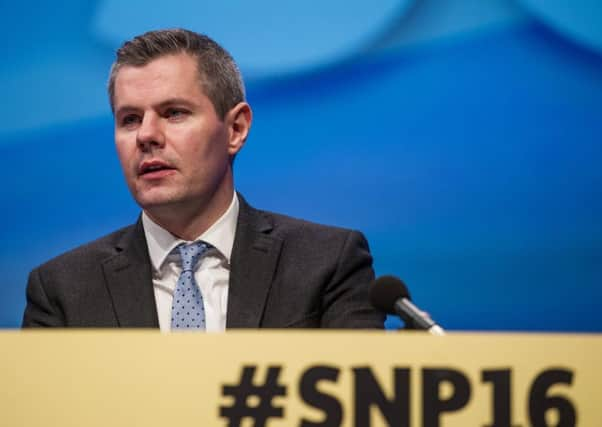Leader comment: Grim assessment for council finances


The administration is committed to deliver ambitious new policy priorities, including real terms increases in the health budget, a doubling of childcare provision, and protection of the police budget. But the economic and fiscal landscape presents major challenges in maintaining current levels of service, let alone in committing more resources. Both the UK and Scottish governments have to contend with annual borrowing and overall debt constraints, lower growth forecasts, tax revenues lower than they might otherwise be and additional pressures from an ageing population.
The latest Fraser of Allander assessment provides even less comfort than its already grim analysis set out in September. It suggests frontline services could be facing cuts running to hundreds of millions of pounds as further financial pressures take their toll on council budgets. It takes the administration to task over its assertions that funding for councils has remained broadly static, saying it has suffered more than £1 billion of cuts and could face a spending reduction of up to £700 million by the end of the current parliament. ‘Unprotected’ public services will have to take up the slack. These, the FoA has previously warned, could face an average cut of up to 17 per cent over the next four years.
Advertisement
Hide AdAdvertisement
Hide AdAll this coincides with a marked increase in the Scottish Parliament’s fiscal responsibilities Around 40 per cent of devolved expenditure will now be funded by tax revenues collected in Scotland, a figure that will rise to 50 per cent once half of VAT revenues are assigned. So Scotland’s economic performance – and more particularly, our relative performance compared to the UK – will have a much greater bearing on the spending plans of Holyrood than ever before.
Similar concerns inform the latest report on local government finance from Audit Scotland. Council budgets, it finds, are under increasing pressure from a long-term decline in funding, rising demand for services and increasing costs. This drives home the need for effective budgetary control arrangements in place to minimise unplanned budget variances that can affect their financial position.
However much gloss the Finance Secretary may be able to apply, the conclusions of the Audit Scotland report are unavoidable: councils need to change the way they work to deal with the financial challenges they face. All councils face future funding gaps that require further savings or a greater use of their reserves. There is variation in how well placed councils are to address these gaps.
Then there is the recent Accounts Commission’s critical report on Falkirk Council. Earlier this year it voiced “significant concerns” over the council’s approach to making £46 million of savings over three years to protect the delivery and improvement of service priorities. The council, it said, needs to identify and agree priorities and adopt a more robust approach to financial planning and improvement. It is a challenge all councils now face.